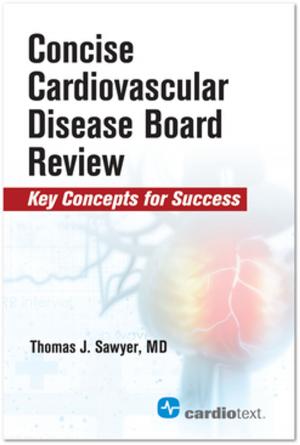Interatrial Block and Supraventricular Arrhythmias: Clinical Implications of Bayés’ Syndrome
Nonfiction, Health & Well Being, Medical, Specialties, Internal Medicine, Cardiology, General| Author: | ISBN: | 9781942909163 | |
| Publisher: | Cardiotext Publishing | Publication: | January 3, 2017 |
| Imprint: | Cardiotext Publishing | Language: | English |
| Author: | |
| ISBN: | 9781942909163 |
| Publisher: | Cardiotext Publishing |
| Publication: | January 3, 2017 |
| Imprint: | Cardiotext Publishing |
| Language: | English |
Bayés’ syndrome refers to the association between interatrial block and supraventricular arrhythmias—mainly the occurrence of atrial fibrillation. It is also a risk factor for cardio-embolic stroke. Rapid recognition by analyzing characteristic patterns in the surface ECG will help the physician to closely monitor the patient for atrial fibrillation and decide on anticoagulation therapy if the clinical risk of stroke is increased. Interatrial blocks were described several decades ago; however, they are now gaining the attention of the medical community as a means of helping to identify patients at high risk of developing atrial fibrillation and/or cardio-embolic stroke. I welcome all readers to navigate this book and to become familiar with this concept that is helping to renovate our models of predicting atrial fibrillation and stroke.
Bayés’ syndrome refers to the association between interatrial block and supraventricular arrhythmias—mainly the occurrence of atrial fibrillation. It is also a risk factor for cardio-embolic stroke. Rapid recognition by analyzing characteristic patterns in the surface ECG will help the physician to closely monitor the patient for atrial fibrillation and decide on anticoagulation therapy if the clinical risk of stroke is increased. Interatrial blocks were described several decades ago; however, they are now gaining the attention of the medical community as a means of helping to identify patients at high risk of developing atrial fibrillation and/or cardio-embolic stroke. I welcome all readers to navigate this book and to become familiar with this concept that is helping to renovate our models of predicting atrial fibrillation and stroke.















